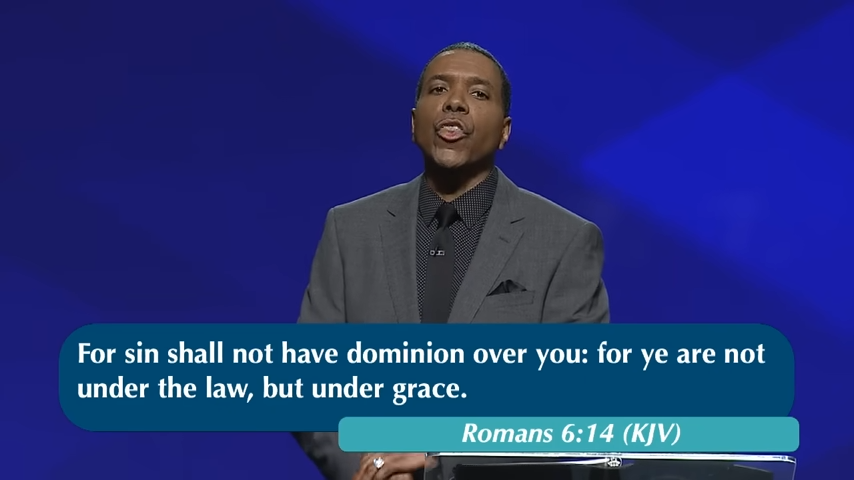Key Insights
- Abraham’s tithe was an expression of his dependence on God, recognizing that God is the possessor of heaven and earth.
- Abram’s declaration of dependence upon God serves as a reminder that our blessings and provisions come from a higher power.
- Giving should be done with pure motives, as an act of worship to God and as a service to the body of Christ.
- The speaker mentions the devil speaking to them and attributing negative events to not tithing, suggesting a controversial belief in a spiritual connection between tithing and life circumstances.
- Jesus challenges the self-righteousness of the Pharisee in Luke 18, highlighting the importance of humility and genuine faith over outward displays of religious practices.
- Religion and self-righteousness operate through guilt and fear, hindering true spiritual connection.
- The speaker suggests that guilt and fear are used in religion to keep people dependent, comparing it to a drug dealer giving an addict a small dose of drugs to keep them coming back.
- “Don’t let nobody tell you you cursed. You are blessed. You got Jesus in your life. You are blessed.”
- “He’s going to keep increasing his provision on you. He’s going to keep blessing you. He’s going to keep turning things around for you. He’s going to keep increasing you. He’s going to keep healing you because he’s Jehovah Jireh.”
Reevaluating Tithing Teachings
- The speaker admits that their teachings on tithing were incorrect and urges people to throw away all their previous materials on the subject.
- Christians are encouraged to seek God’s wisdom in determining how much they should give, emphasizing the importance of prayer and personal discernment in financial stewardship.
- It is important to examine what the new testament actually says about tithing, rather than relying on what we have been told.
- Jesus commended the poor widow woman for giving more than the rich because she gave out of her poverty, while the rich gave out of their surplus.
Living by Grace, Not the Law
- We are no longer under the law, but we live according to grace and what Jesus has done for us.
- Jesus criticizes those who prioritize minor details (straining a gnat) over the more important aspects of their faith (swallowing a camel).
- 🧠 The Holy Ghost brings about a change in desires, replacing old wants with new ones, leading to a different way of living based on grace rather than adherence to Jewish rules.
Summary
- Christians are no longer required to tithe 10% of their income, as Jesus’ death changed the concept, and instead, they are encouraged to give gifts in accordance with their income as a declaration of dependence on God’s ability to take care of them.
- Christians are not required to tithe 10% of their income, as the new testament emphasizes giving based on individual ability and the needs of the church, with pure motives and an attitude of worship, overriding the old testament teaching of tithing.
- Jesus emphasizes the importance of following all aspects of the Jewish law, including tithing, but he is not advocating for tithing in the new way of the gospel; self-righteousness and religion involve striving to make oneself right before God through guilt and fear, and Jesus rebuked the Pharisee for his self-righteousness while teaching on tithing; Paul, a former Pharisee, never mentioned tithing when teaching about giving, challenging the idea that tithing is a requirement under grace.
- Teach the rich to use their wealth for good works and generosity, without adding Jewish rules; the Holy Ghost changes individuals from the inside out, disregarding the need for tithing; giving tithes and offerings is important for blessings.
- Give out of your living, not your savings, and have confidence in God’s ability to take care of you instead of playing religious games.
- Sometimes God wants you to trust Him and get started, even if you don’t have all the resources, as demonstrated by the speaker’s experience of starting a building project without knowing where the money would come from; breakthrough comes from receiving a revelation from God and following His wisdom, as seen in 2 Corinthians 8:7; biblical charity is about operating in excellence and not accepting junk; depend on God to meet your physical needs because He wants to take care of you.
- Trust in God’s love and blessings, not the opinions of others or the pursuit of money, as it can lead to idolatry and prioritizing worldly matters over our relationship with Him.
- The speaker expresses love and commitment to correcting their teaching, shares the story of Melchizedek and Abraham, invites non-believers to accept Jesus, emphasizes the importance of repentance, worship, and giving, and encourages having fun and joining the church for blessings and information.


